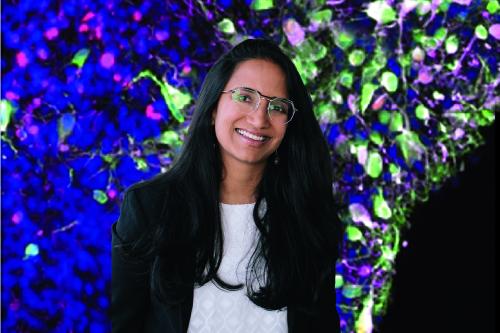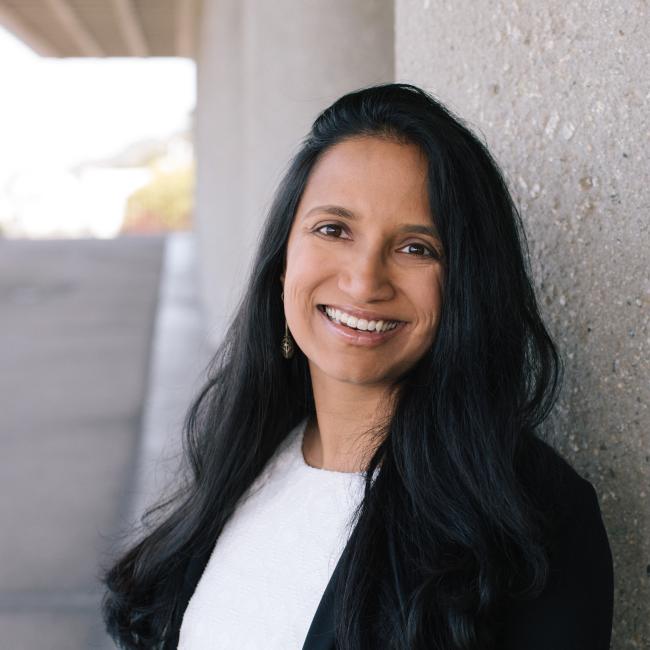
From UCLA Magazine: The Alchemist
UCLA researchers work daily to solve our most vexing medical riddles, and few face a more daunting challenge than Aparna Bhaduri. The assistant professor of biological chemistry at the David Geffen School of Medicine at UCLA is tackling glioblastoma, or GBM, the most aggressive and lethal form of brain cancer. Now, in groundbreaking work, she and her team are using organoids — artificially grown masses of cells or tissue — rather than mouse models to decode the cellular mechanisms behind the disease, a novel approach that bucks decades of precedent. Bhaduri believes that it will reveal how various cell types drive tumor development, opening the way for the creation of new therapies targeted to each patient’s unique tumor.
“There are so many different cell types involved in glioblastoma. Even if you have an effective treatment against one of them, the others can essentially take over and keep the tumor growing,” she says. “It’s like whack-a-mole.” The goal: to understand that process, and stop it.
Bhaduri’s road to doing cutting-edge cancer research at UCLA began with her childhood forays into chemistry in her ersatz lab — the family’s kitchen. At 7, supplied with an array of condiments borrowed from her very understanding mother, Bhaduri stirred, froze and boiled her way to understanding how various solutes change the temperature at which water becomes a solid or a gas.
“The assignment was just to make a poster,” she recalls with a laugh. “But given the chance to do something with science, rather than just doing the basics, I always took it to the extreme.”
